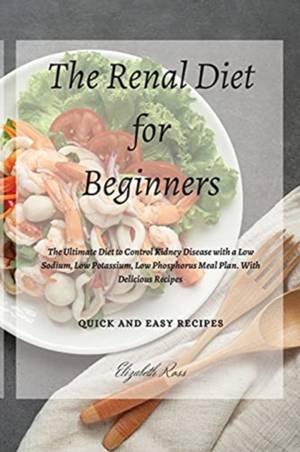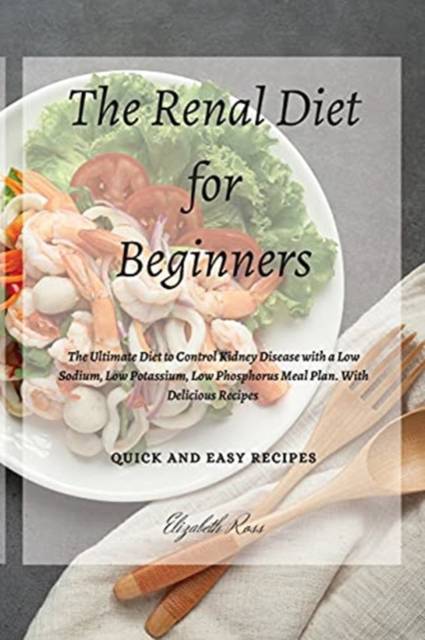
- Retrait gratuit dans votre magasin Club
- 7.000.000 titres dans notre catalogue
- Payer en toute sécurité
- Toujours un magasin près de chez vous
- Retrait gratuit dans votre magasin Club
- 7.000.0000 titres dans notre catalogue
- Payer en toute sécurité
- Toujours un magasin près de chez vous
The Renal Diet for Beginners
The Ultimate Diet to Control Kidney Disease with a Low Sodium, Low Potassium, Low Phosphorus Meal Plan. With Delicious Recipes
Elizabeth RossDescription
The renal diet, otherwise known as a renal-restricted diet, is specifically designed to promote healthy kidney function and reduce the risk of further damage. This diet is often created for patients who are at risk of developing chronic kidney disease (CKD) or for those who have already been diagnosed. CKD is the most common type of kidney disease, which results in a gradual loss of kidney function.
The purpose of the renal diet is to control your consumption of sodium, protein, potassium, and phosphorous. This specific diet contributes to the prevention of renal failure. Below is one of the main acids found in food/nutrients you should avoid to prevent kidney-related problems:
Phosphate: Consumption of phosphate becomes dangerous when kidney failure reaches 80% and goes to the 4th/5th stage of kidney failure. So, it is better to lower your phosphate intake by counting the calories and minerals.
Kidney disease can lead to end-stage renal disease (ESRD) which is a complete loss of kidney function and requires dialysis or a kidney transplant to stay alive. A renal diet is geared toward people suffering from kidney problems. The reason behind this is mainly because the kidneys need to work less when on a renal diet which means they will need less energy and fewer resources.
This book covers:
- Breakfast recipes
- Lunch recipes
- Dinner recipes
- Seafood recipes
- Snack recipes
- Desserts
And much more...
These diets are designed to make it easier for your kidneys to function so they can help remove toxins from your blood. The problem is that most foods that are high in protein and sodium can worsen kidney disease.
Individuals with kidney disease are at a greater risk of developing osteoporosis because the kidneys are responsible for producing the hormone that helps the body absorb calcium. When the kidneys don't function properly, calcium levels in the body drop which can lead to osteoporosis.
Luckily the recipes in this book will aid you in preventing the long-term effects of kidney disease and slow down any symptoms you may already have.
Spécifications
Parties prenantes
- Auteur(s) :
- Editeur:
Contenu
- Nombre de pages :
- 112
- Langue:
- Anglais
Caractéristiques
- EAN:
- 9781802746242
- Date de parution :
- 25-04-21
- Format:
- Livre broché
- Format numérique:
- Trade paperback (VS)
- Dimensions :
- 152 mm x 229 mm
- Poids :
- 158 g

Les avis
Nous publions uniquement les avis qui respectent les conditions requises. Consultez nos conditions pour les avis.






